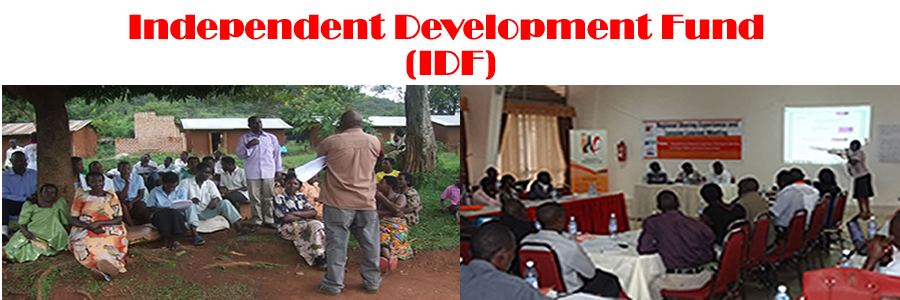Q: What is your role as
Programme Support Manager of the IDF?
A. My role is to provide leadership in IDF grant
management in line with the Fund’s policies, procedures and regulations. The
work includes coordinating and facilitating the grants selection process,
monitoring the implementation of grantees' projects and to some extent managing
relationships with project stakeholders.
Q: How long have you been working
in such a role and what experience do you bring to the team?
A.
I have worked on similar roles for
a period of over ten (10) years and I bring along experience in the dynamics of Project
Cycle Management. I also think that my experience working with similar
programmes in the fields of Good governance and CSOs are valuable assets for my
work as part of the IDF team.
Q: In what ways do you see
the IDF contributing to good governance and respect for human rights in
Uganda particularly at the community levels?
A.
IDF’s contribution is basically
technical, institutional and grants support to enhance observance, protection
and fulfilment of human rights and good governance. It is not possible to
achieve good governance without addressing issues regarding the protection of human
rights. The IDF contribution is directed through civil society organisations
working with and at the community levels with the end beneficiaries being
the ‘local’ level communities. This kind of support facilitates the development
of constructive engagement of communities, as well as strengthens contacts
between communities and decision-makers (District Authorities).
Q: What are some of the
strategies that the IDF-grantees employ to promote partnerships with the
District Authorities and various sectors at the National Level?
A.
Many of IDF Grantees come on board when
they have already established a working relationship within their districts of
operation. As they receive funds form IDF for specific projects, they
strengthen these relations for the effective running of the Projects.
Whereas many Grantees have signed Memorandum of Understanding (MOUs) to be clear on each party’s
expectations and requirements, others have continued active participation and
engagement in district budgeting and planning processes. I believe
that one common denominator for the IDF Grantees that has achieved good
partnerships is that they have been able to create and communicate win-win
situations. It is important that both the Grantees and the Districts’ authorities
recognize that cooperation and partnership is mutually beneficial
Q: How do you view the
(IDF) Programmes Progress?
A.
IDF is surely evolving very fast. Projects
supported through IDF are progressing well, and there are many samples of good
results. At the same time one must remember that realising good governance and
responsive authorities towards Human rights violations takes time. The things
that I am most encouraged by are the many cases of improved cooperation and
increased trust between local governments and communities/Grantees that the
supported projects have resulted in, this is very promising for the future.
